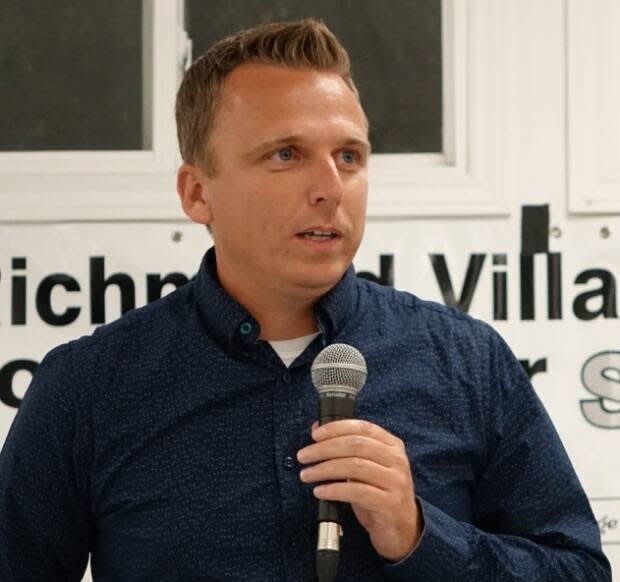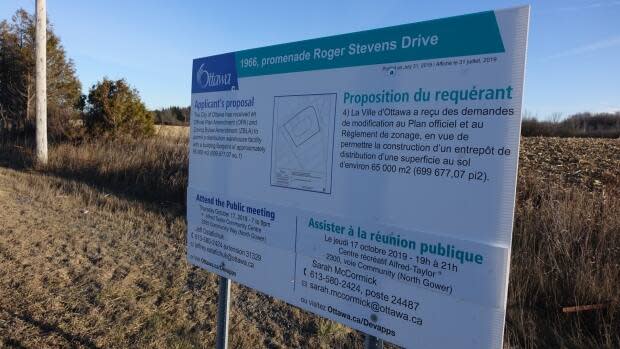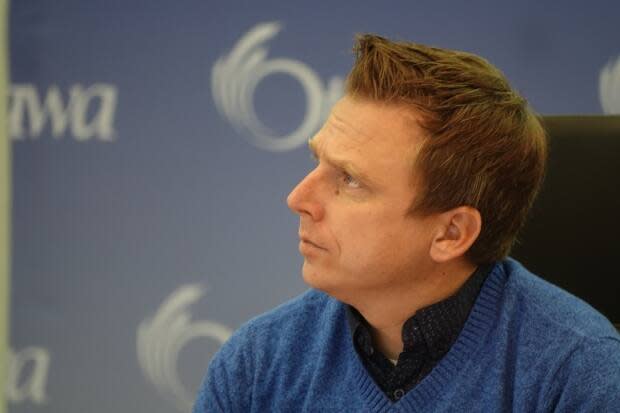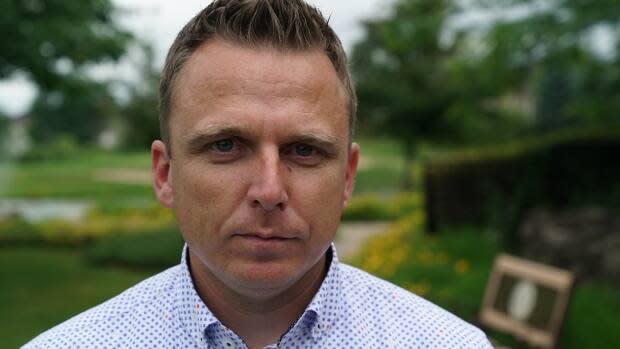Scott Moffatt is leaving city council — but on his own terms

Rideau-Goulbourn Coun. Scott Moffatt caught many off guard when he announced earlier this week that he would not seek re-election next year.
But to those closest to him, the decision came as no surprise.
The three-term councillor, who lives in North Gower with his wife Jill, a nurse at CHEO, and their five children, chairs the city's environment committee and co-chairs the planning committee.
During his 11 years on council, Moffatt hasn't always taken the easy road, sometimes adopting positions that put him at odds with his constituents. Yet since his first successful campaign in 2010, he's won re-election twice. So why stop now? And what's next?
Earlier this week, CBC Ottawa sat down with Moffatt at his office in North Gower to talk about what he's learned from his time in office, why family must always come first, and why the easy decisions aren't always the right ones.

It's a calling
Moffatt says he was fascinated with municipal politics from a very young age. Seriously.
"I grew up watching these guys," he said, gesturing to a framed portrait of the former Rideau Township council taken in 1981, the year of his birth. "I always had this weird interest."
He took his first stab at a seat on Ottawa city council in 2006, losing to Rideau Township's former mayor, Glenn Brooks. Four years later he was back, trouncing Brooks and three other candidates with more than half the vote.
There's no question the way I do my job, I create opposition. - Coun. Scott Moffatt
"I've often said since then that the best thing that happened to me politically was losing that [2006] election, because I learned what I did wrong," Moffatt said.
"I think had I won, I would have maybe taken the job for granted. I wouldn't have earned it if I'd won in 2006 the way I had to earn it in 2010."
Sticking to your guns
From the get-go, Moffatt has found himself at odds with many of his constituents over some of the most contentious issues facing the largely rural ward.
"There's no question: the way I do my job, I create opposition. I can be very blunt and direct with individuals. I take positions sometimes that might not seem the most popular, but in my estimation are in the best interests of the community," he said.
In 2011, it was bi-weekly garbage pickup. Moffatt backed the plan to save money and encourage recycling by reducing garbage service, and even volunteered his young family to prove it could be done.
In subsequent terms, Moffatt backed an unpopular stormwater fee for rural residents because he reasoned the new tax structure would benefit them in the long run. More recently, he supported a controversial plan for a massive warehouse on Roger Stevens Drive.

"I believe that what we did with the zoning for that property is absolutely in the best interest of this community long-term. There are members of the community that don't believe that, but I do," Moffatt said.
"The easy decision? Oppose it. Let it pass through council because everyone else will vote in favour of it, and I oppose it. Then it looks like I stand with the community. I've never done that. I've always felt I've got to be honest with people."
Council dysfunction
While he may have a knack for getting backs up in his own ward, Moffatt has largely managed to float above the personal animosity that has come to characterize Ottawa city council — at least in the public's eye.
"When a few of us look like we're fighting, the public just sees all of us fighting. The public doesn't discriminate," Moffatt said. "That becomes an 'all of us' issue. 'Throw the bums out, they all have to go.'"
He agrees that the rift has widened recently, especially between a predictable voting bloc of urban councillors and the rest, usually led by the mayor.
"In my first term, there was a stronger willingness to collaborate and work together," he said. "I know one member of council currently, their entire goal is not being seen to be in line with the mayor."

Moffatt said his own approach as environment committee chair has been more collaborative than combative.
"I think I have a track record of helping councillors get stuff done in a collaborative approach that then gets through council, usually with overwhelming majority support. The official plan just passed 21-2. That wasn't a 15-8 vote," he said.
"I don't have an opportunity to be an opposition councillor. We're in government, every single one of us, and we each have a role."
Putting family first
As most politicians discover, it may be their name on the ballot, but their family's along for the ride, whether they want to be or not.
Moffatt recalled one trip to the grocery store early in his first term, at the height of the stormwater fee debate.
"I don't think I saw my family for two hours. Aisle after aisle, people stopped to talk to me. And you can't just say, 'I'm off the clock.' I mean I could, but you'll probably never get that person back. They'll always remember that I brushed them off."
As he grew into the job, Moffatt gradually learned to devote more time to his family. A big part of that, he said, was quitting Facebook in 2019.
"I was just answering the same questions over and over again to the same people, and two hours would go by and I'd just be completely ignorant of the people around me at home. So I tried to fix that," he said. (Moffatt remains active on Twitter and produces his own podcast called Twenty One, Rideau-Gloubourn's ward number.)
He said he must be doing something right because his kids want him to run again.
"I think they think I'm good at the job."

Time to move on
But the decision's been made. There will be no fourth term.
"I think three terms is a good amount of time to get the job done, to gain the experience to do what you need to do to be effective," he said.
Moffatt said he decided early on that 12 years in office would be enough.
Council was fine before me, council will be fine after me. - Coun. Scott Moffatt
"I think after a while, I think the ward can use a new set of eyes on issues. I think council needs a changeover," he said.
"I know that if I stayed I have something I can contribute. I can provide value, but other people can provide value too. Council was fine before me, council will be fine after me."
He's not saying exactly what he'd like to do next, but insists there's no job waiting for him.
"I know what I would like to do, but until that time that I secure that, there's no point to talk about it," Moffatt said. "All I'll say is, I really like municipal government."


